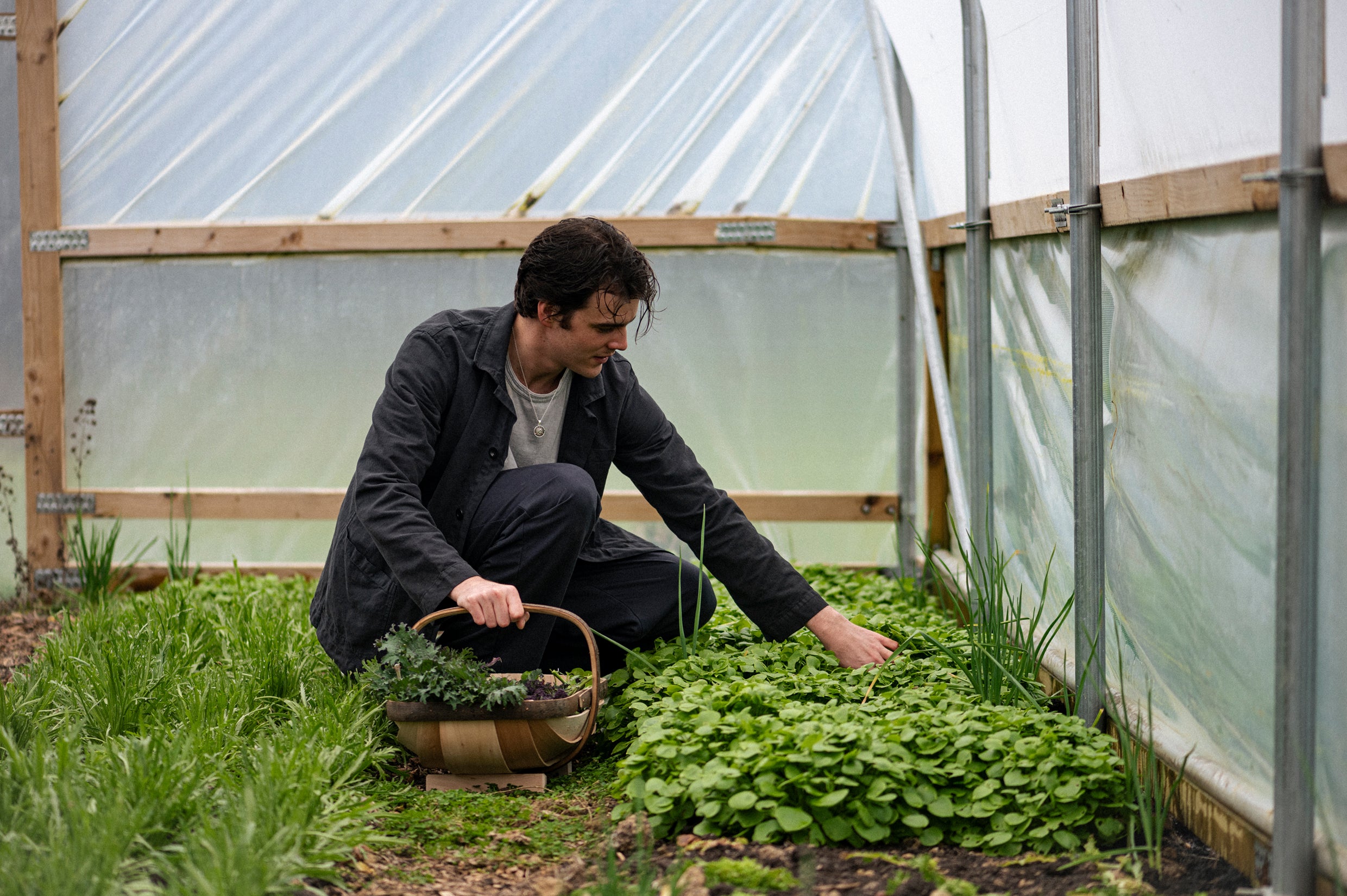
It might only be February but the summer produce plan for the market garden at Knepp is already firmed up. “The growers aren’t just growing vegetables for a particular dish, but to a particular specification,” explains Ned Burrell, director of the new onsite Wilding Kitchen restaurant and café. “For instance, we’ve asked them to leave the leeks in the ground for longer to get thicker so they can be cooked over charcoal where they steam themselves, creating less wastage.”
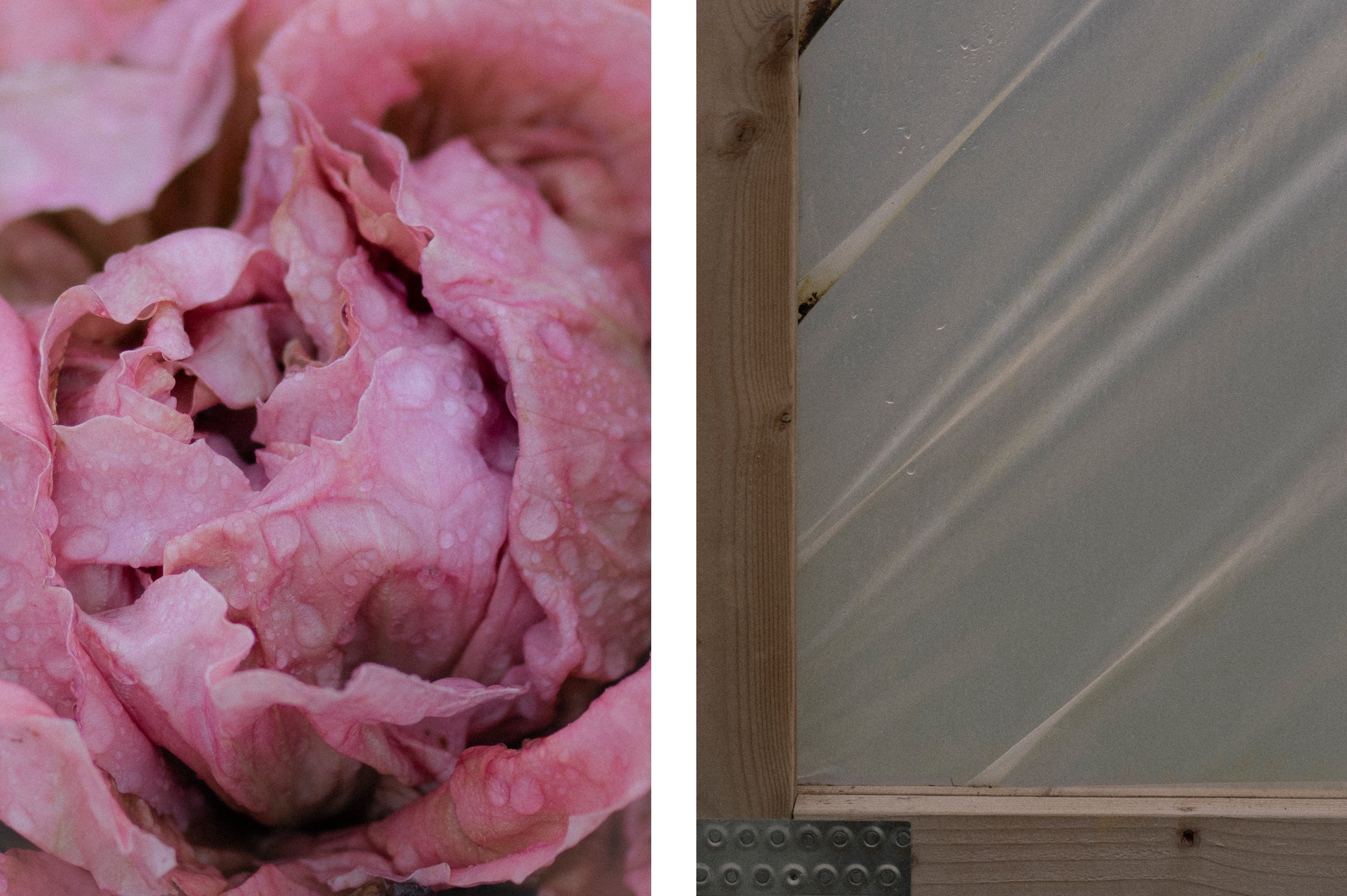
Knepp is the trailblazing 3,500-acre rewilding project in Sussex founded in 2001 by Ned’s parents Charlie Burrell and Isabella Tree, which others around the country are now modelled on. “The whole reason Knepp came out of agriculture was because of the soil: it sits on heavy clay soil which is like concrete in summer and porridge in winter,” says Ned. Longhorn cattle and deer were reintroduced first, then Tamworth pigs and Exmoor ponies. “The restaurant exists as a byproduct of rewilding and has been created to explain the story through a food lens, which we haven’t done before.”
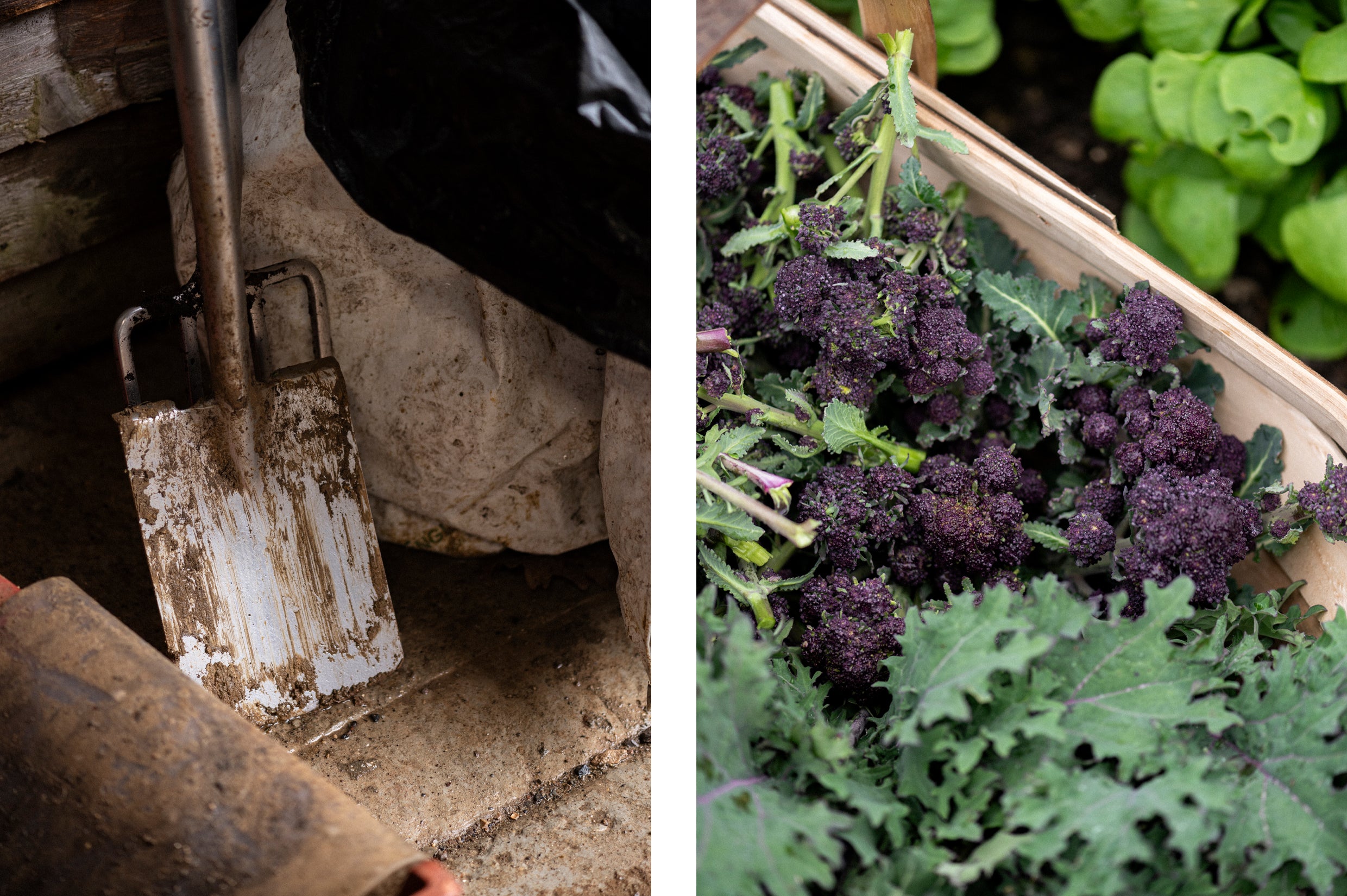
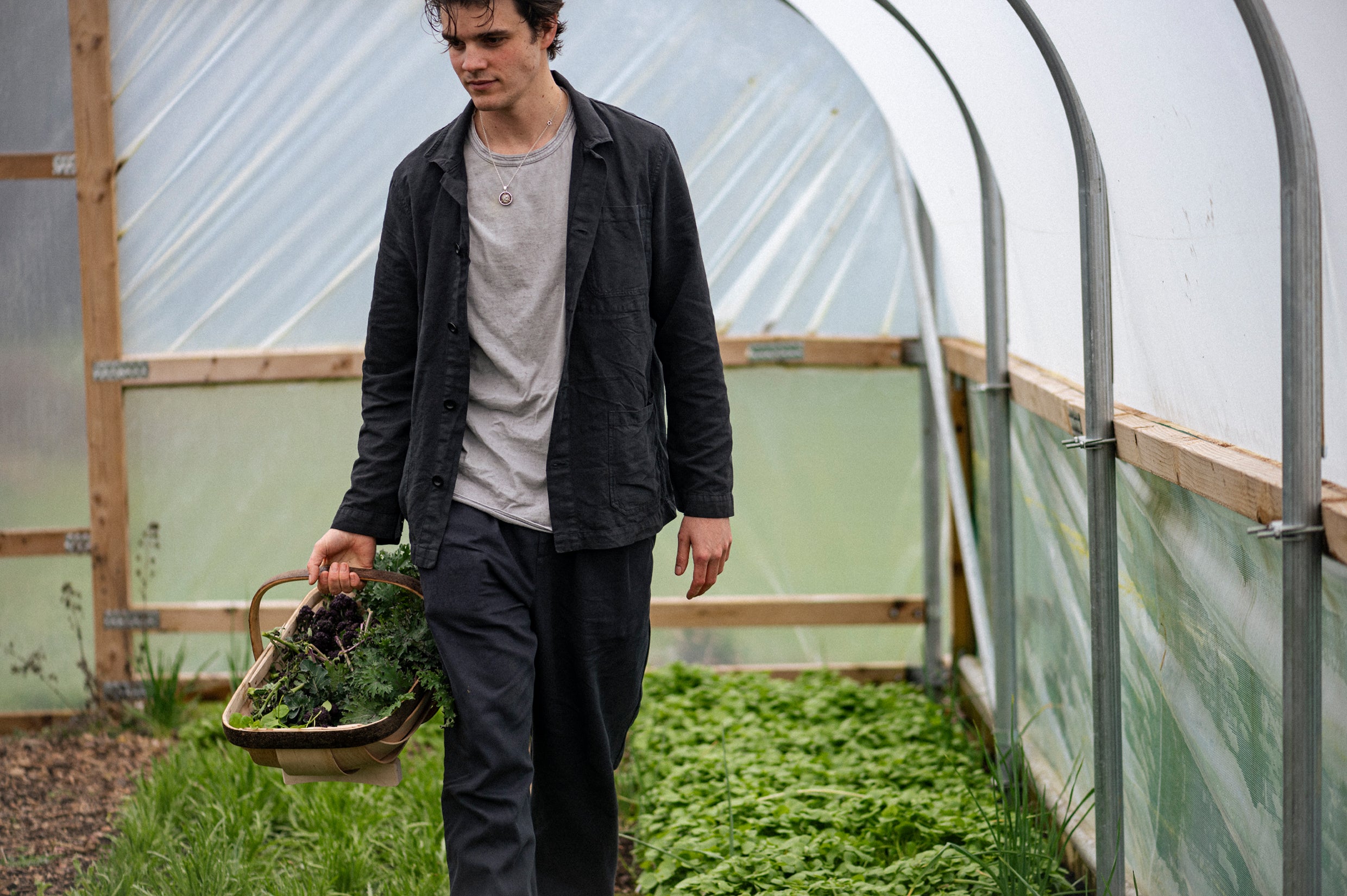
That food narrative centres around the signature steaks, which are aged for around 100 days and meant for sharing. “Cattle are ecosystem drivers. The way they move through a landscape and graze completely alters how plants grow and what species are attracted to that habitat,” he continues. “We cull to maintain the matriarchal herd system, keeping numbers down to a range that means they can stay outside all year without us having to supplementary feed them. What’s unique about the restaurant is that we know exactly where every steak on the grill has come from; there’s full traceability.”
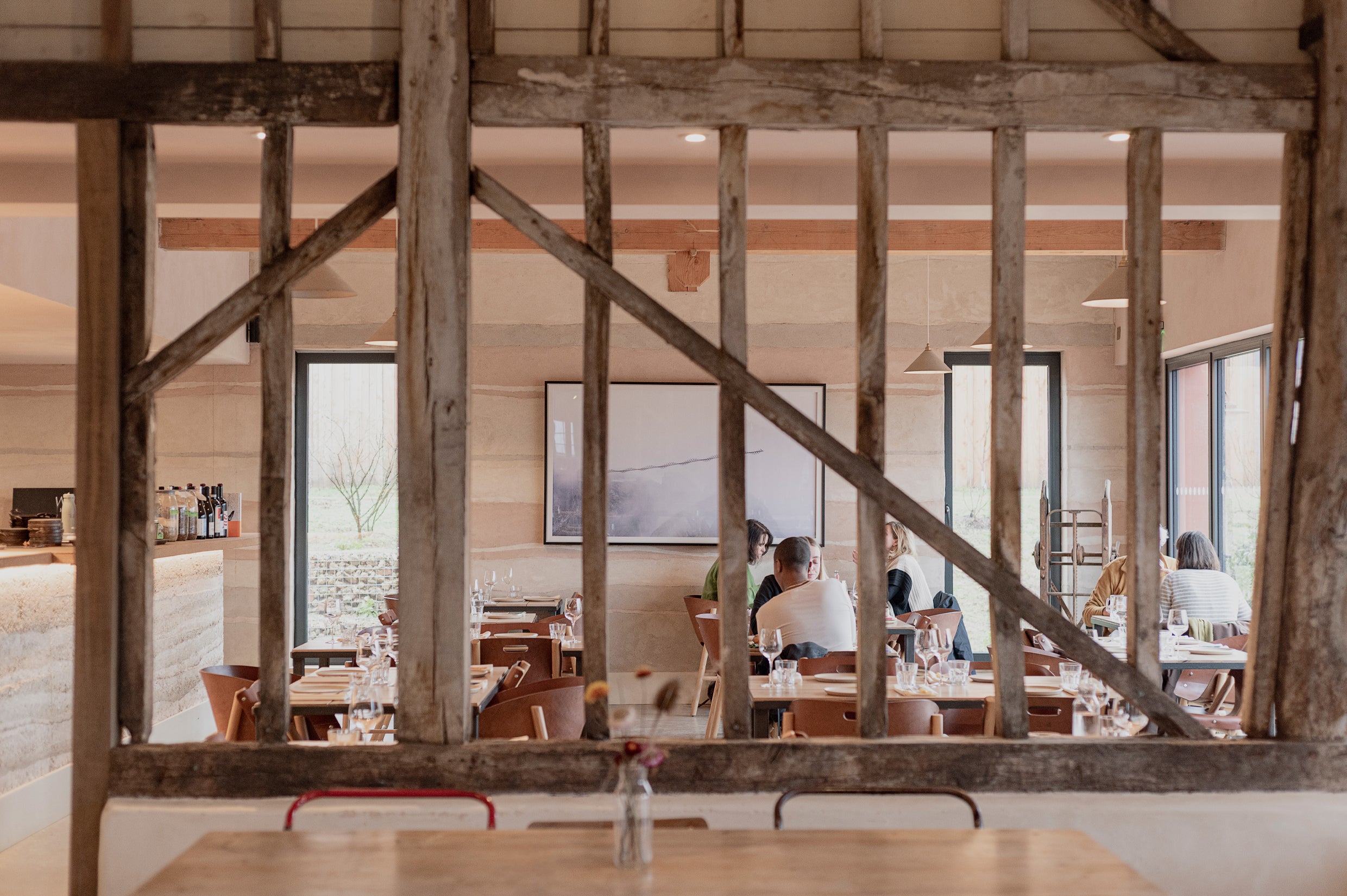
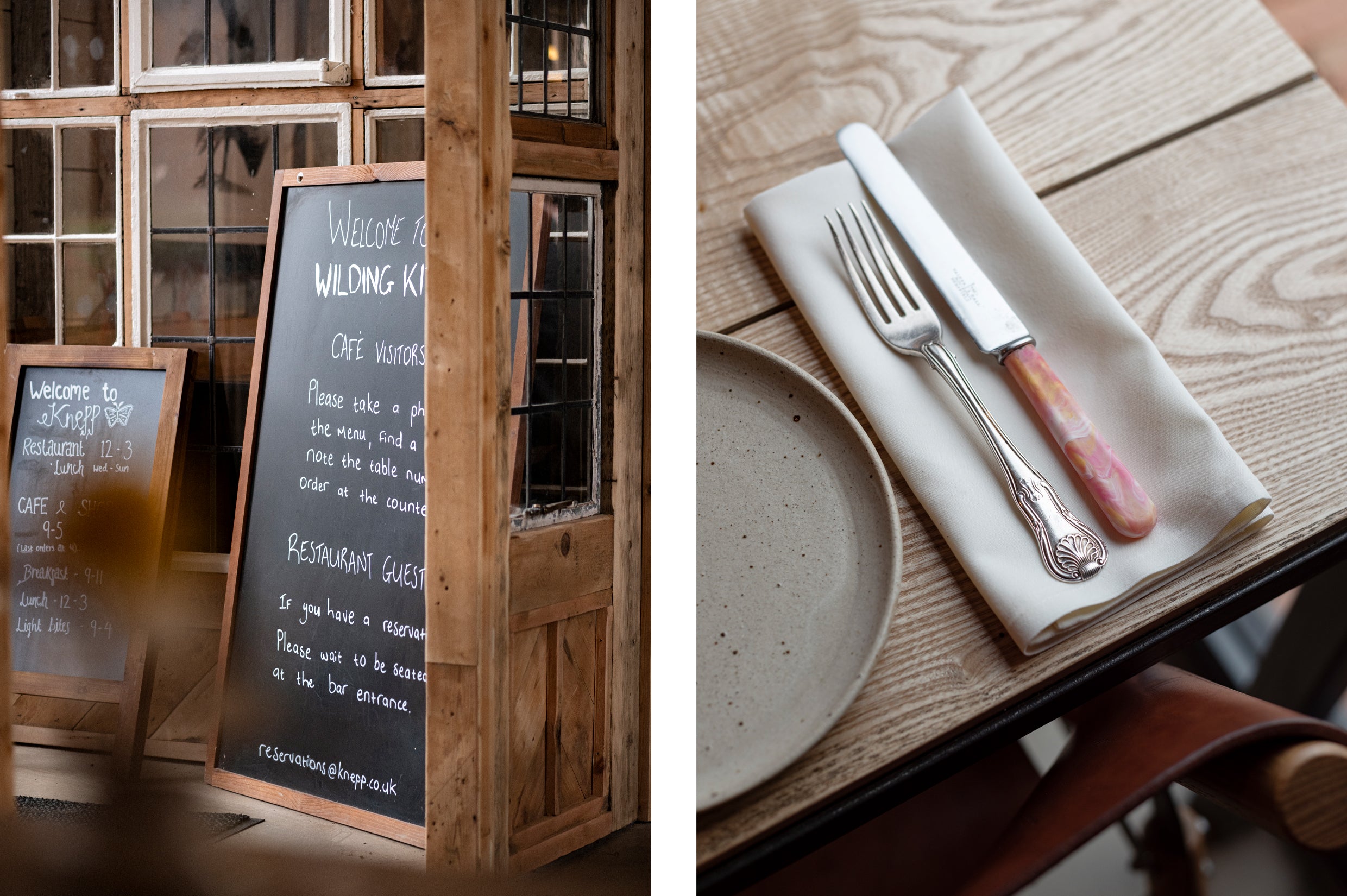
Sustainability is also integral: there is a no airfreight policy and organic takes priority over local – even if that means sometimes having to buy in huge bulk. “We recently bought a ton of oil, literally a ton, to be able to make being organic financially viable,” says Ned. The wine is vegan; fish (when it is on the menu) from a dayboat fisher is caught in Sussex Bay, a new marine-protected area off the south coast; and everything is made in-house, from charcuterie to kimchi.
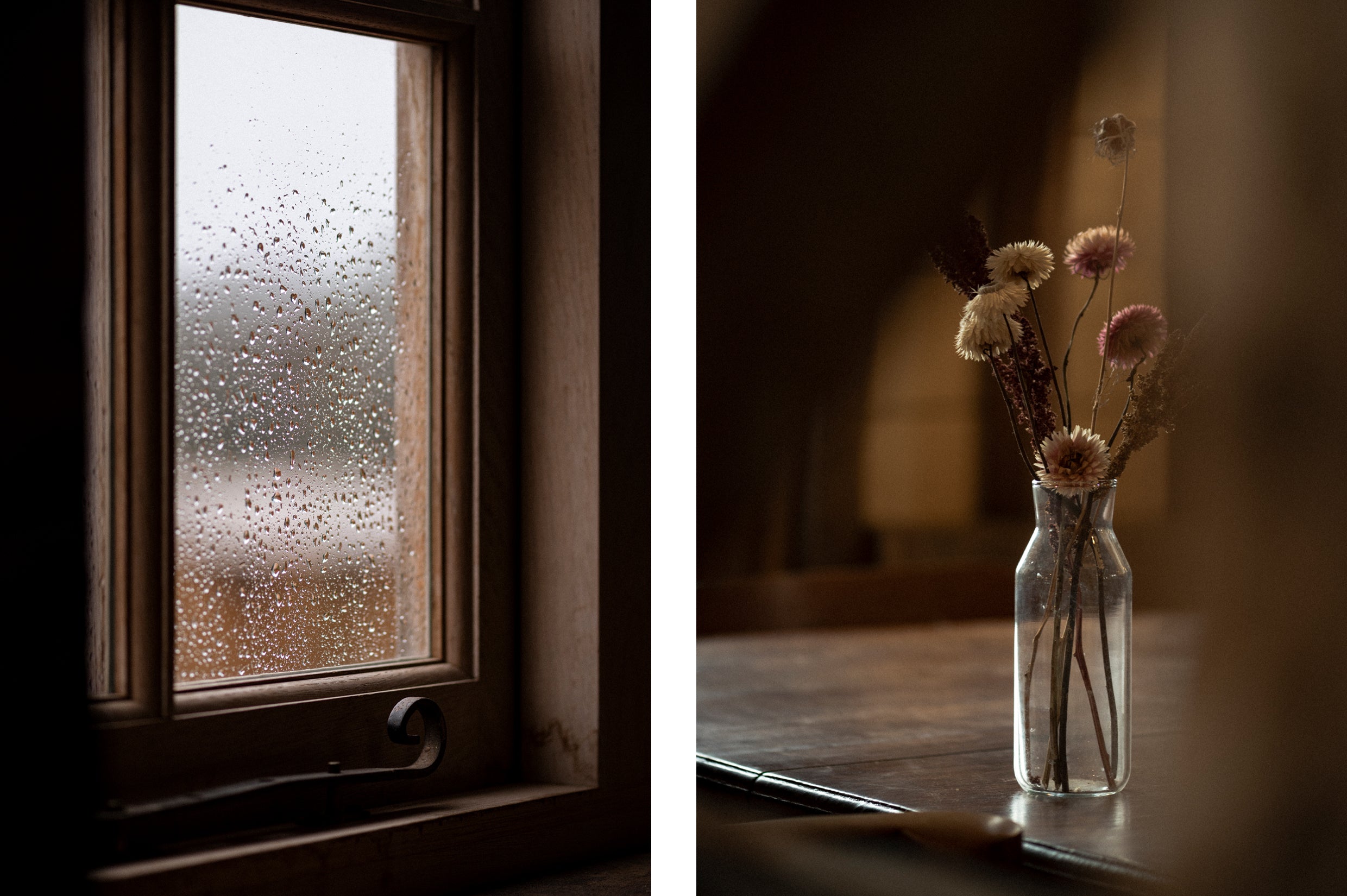
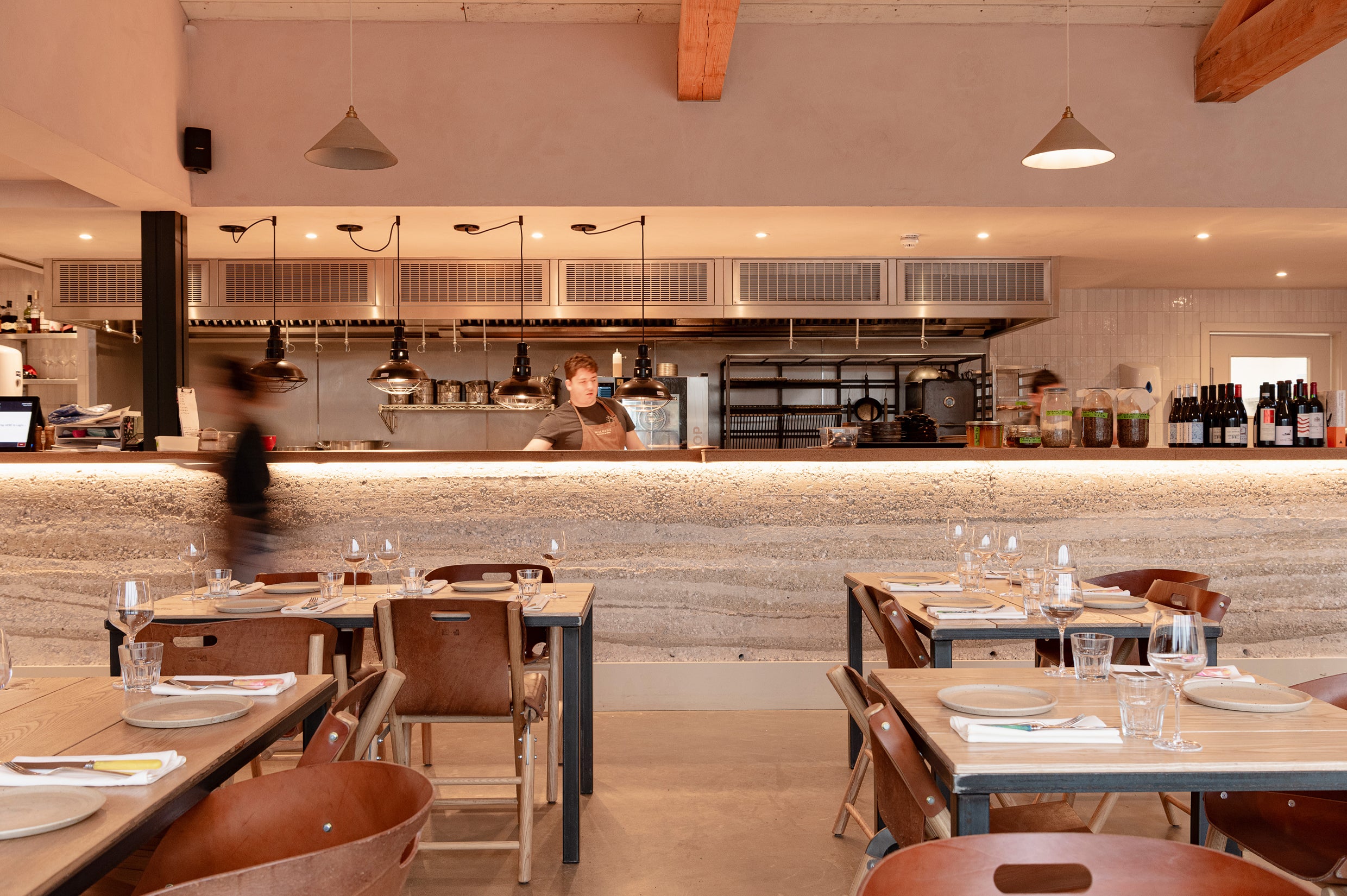
The space itself – a restored eighteenth-century barn – also links directly to its surroundings. A rammed earth wall under the kitchen pass reflects the layers of soil and chalk outside. Tables are made from ash trees, cut down due to dieback, and paired with leather hide chairs by Bill Amberg. And, after consulting with the team of ecologists about the best gradient, bat and swallow boxes have been installed in the eaves. “Swallows haven’t been seen here for 15 years but are hoping we can attract them again.”

Growing up, Ned didn’t realise quite how extraordinary Knepp was until he left to study humanities at Newcastle University. With time on his hands, he gravitated towards the food stalls at Grainger Market. “I would find stuff I’d never seen before, take it back to my student flat and learn how to cook it - badly,” he recalls. “I fell in love with the produce to plate idea.” After his degree, he did a three-month course at Ballymaloe cookery school in Ireland. “There you wake up at 5am to milk the cow, then make cheese. The course finished just as covid hit and I entered an industry that had collapsed overnight.”
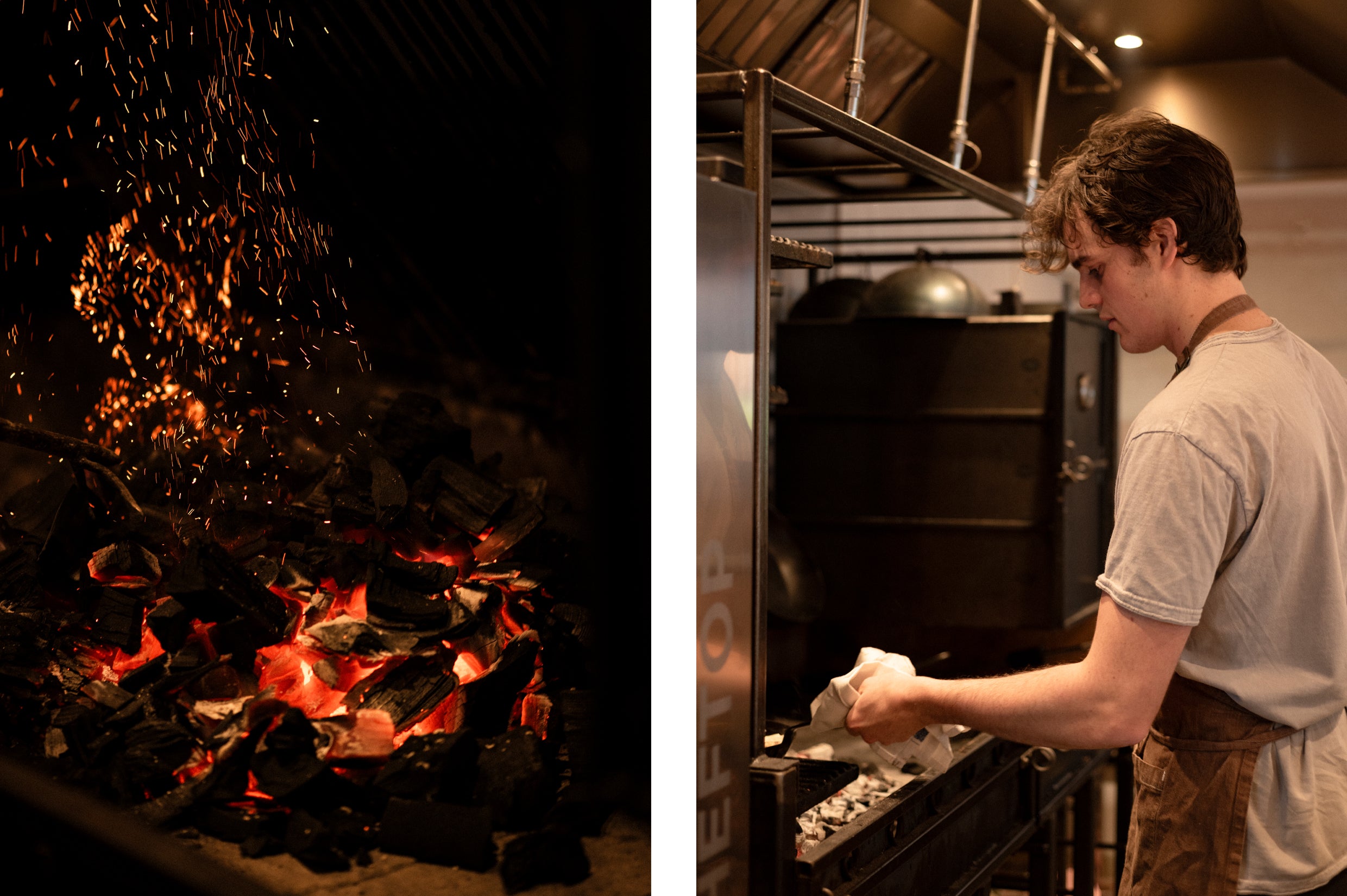
Back at Knepp, he set up supper clubs and a coffee trailer for walkers, and decided to take the lead on the restaurant-cafe concept. “My parents are foodies and it’s something they’ve always wanted to do but it was put on the backburner,” he says. In preparation, he did a stint at Brat restaurant in London, plus spent time in several other top kitchens. “It wasn’t so much about learning to cook, more about different processes and philosophies, which is what all the kitchens I saw focus on: St John’s is nose-to-tail cooking, Brat is charcoal cooking, Kol is precision fermentation…”
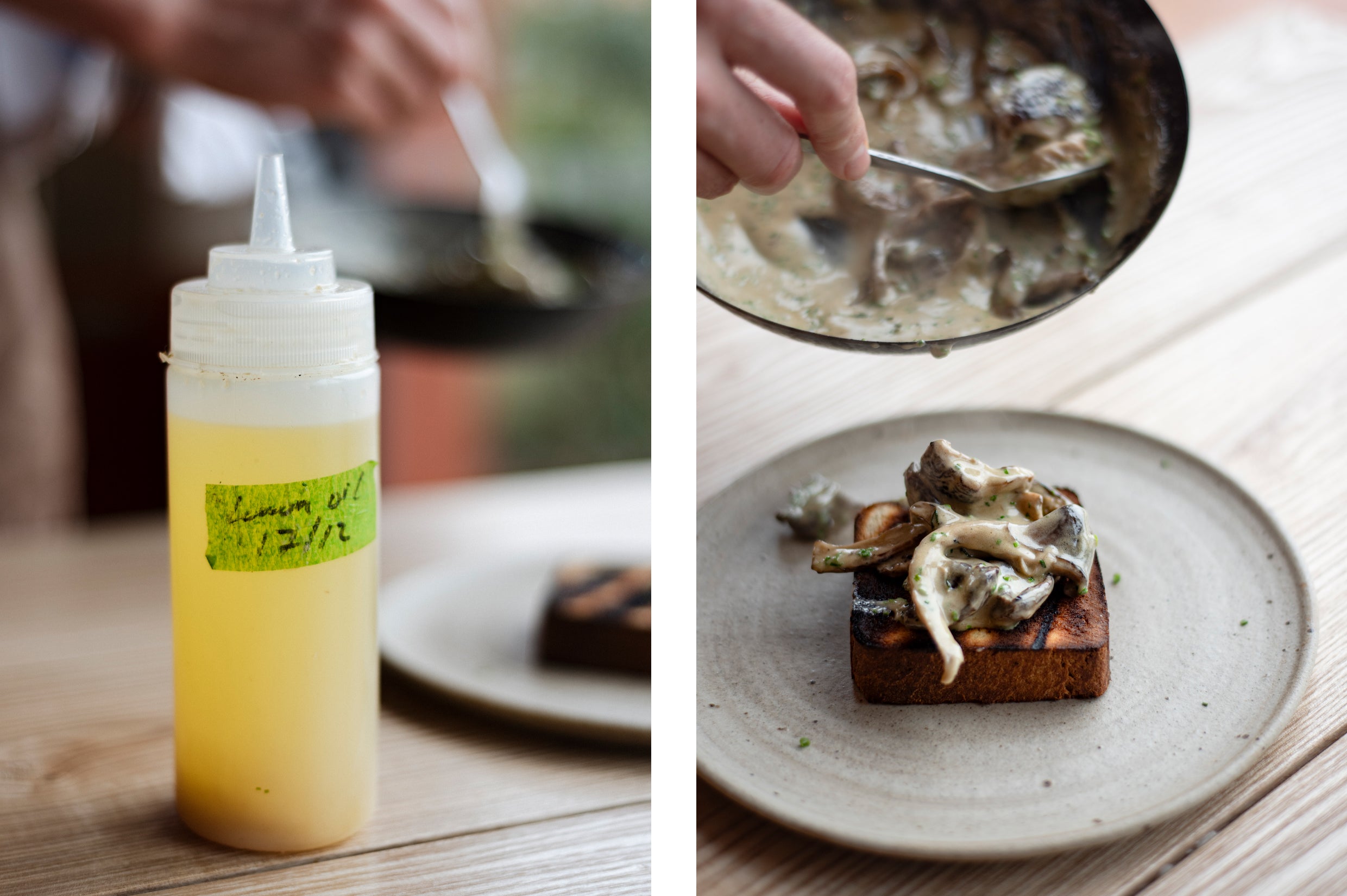
Although Wilding Kitchen only opened in August last year, Ned (who shares cooking duties with head chef Bradley Adams) has plenty of plans in the pipeline, including barbecues in the courtyard, Saturday evening openings, author talks and concerts. “We’re only at the beginning. We want to incorporate more fermentation to extend the seasons for our vegetables so the winter hungry gap is more exciting than just kale florets or leeks. And we want to be known as a sustainable hub where like-minded people can come and share ideas,” he says. “As a society, there’s an urgent need to rethink our approach to food. Here we tread a fine line of trying to get a message across without being preachy because at the end of the day, sometimes you just want to have lunch.”
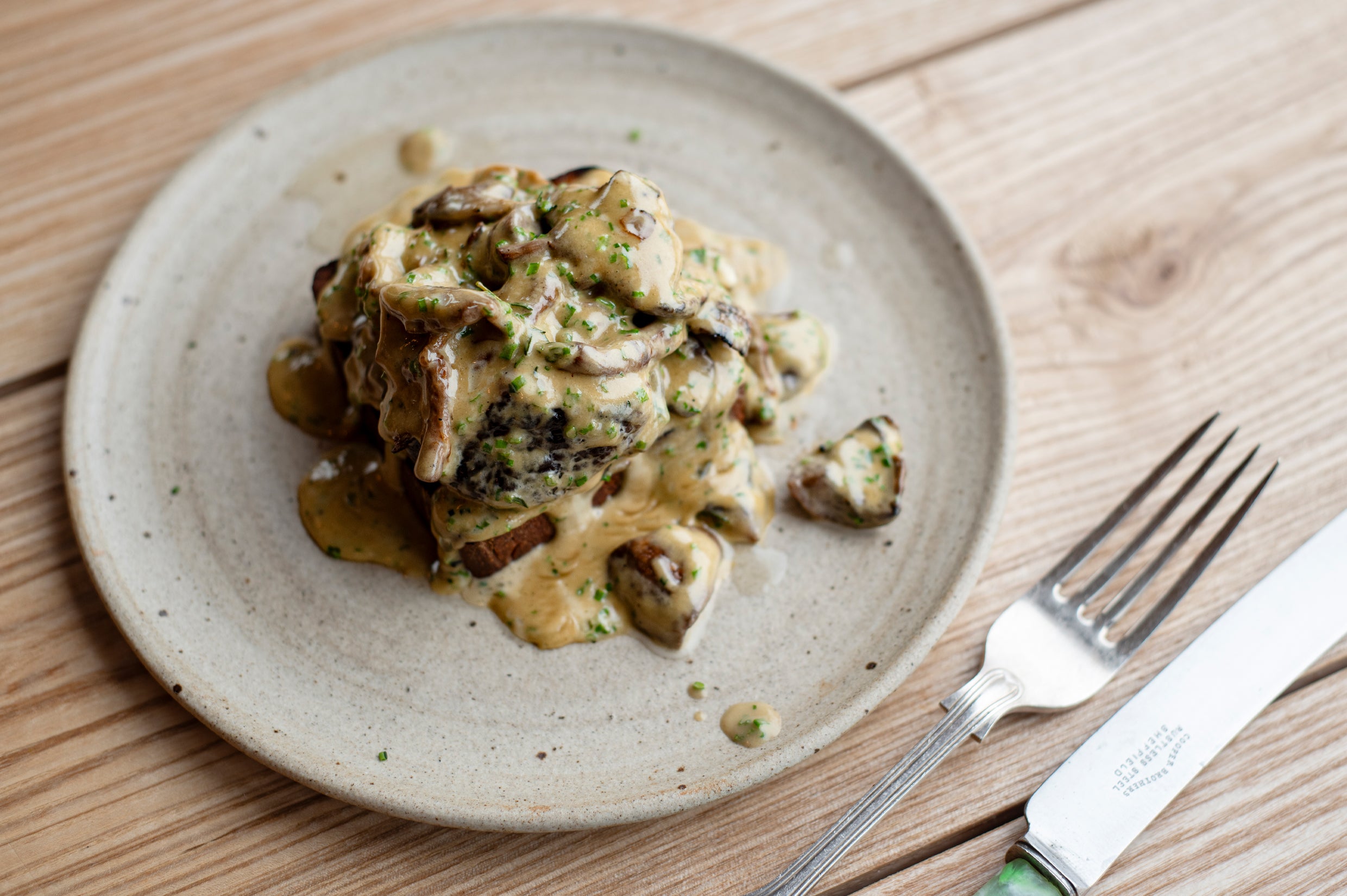
Mushrooms on Beef Fat Brioche
Serves two as a starter or light lunch.
Ingredients:
Brioche:
500g strong white flour
50g lukewarm water
5 eggs, beaten
10g salt
60g sugar
250g beef fat (or butter), softened
8g dried yeast
Mushrooms and cream sauce:
240g mixed mushrooms
100ml double cream
25ml madeira
2 sprigs of fresh thyme
20ml sherry vinaigrette
Squeeze of lemon juice
Freshly cut chives
Salt
Method:
For the brioche, add flour, salt, sugar and yeast into a mixer and combine together with a dough hook. While on a medium speed, gradually add the lukewarm water and eggs. Then the softened beef fat (or butter), adding more only once fully incorporated. Place in a large mixing bowl and cover with a tea towel or plate. Leave until doubled in size. Depending on the temperature of the room, this can take up to two hours. Once risen, place in a fridge for an hour.
Line a loaf tin with baking paper and natural oil. Divide the dough into equal pieces and lightly dust a work surface with flour. Push down lightly on the dough with the palm of your hand and rotate in a circular motion. The dough should start to come together into a ball. Place each dough into the loaf tin and cover in a tea towel to prove for a further 25-30 minutes until almost doubled in size.
Bake in the oven at 180C / 160C fan for 30-35 minutes until golden brown. Leave to cool for 15 minutes before removing from the tin.
Prep the mushrooms by tearing or cutting into equal size pieces.
Place a pan over a high heat and add enough oil to lightly coat the bottom. Add the mushrooms and sear until golden brown. Add the madeira and reduce by half, then add the cream and thyme. Allow this to thicken for a few minutes.
Add sherry vinegar and lemon juice for acidy. Add the chives and season with salt before serving on a toasted slice of brioche.
Ned wears the TOAST Arlo Garment Dyed Herringbone Jacket and Bill Cotton Wide Leg Trousers.
Words by Emma Love.
Photography by Rebecca Dickson.
Add a comment
2 comments